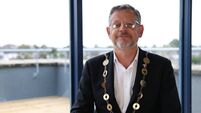Italians enthralled by ship’s tale of two captains
Italy has become enthralled with the tale of two captains.
One is coastguard captain Gregorio De Falco, who furiously ordered the skipper of the Costa Concordia to return to his ship and oversee the rescue operations.














